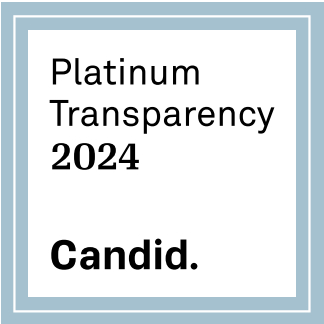Study Looks at the Effectiveness of Long term Treatments of GERD
Gastroesophageal reflux disease (GERD) is a common disorder. About 10% to 20% of Americans have frequent heartburn, the most common symptom of GERD. The disease is characterized by symptoms and/or tissue damage that results from repeated or prolonged exposure of the lining of the esophagus to acidic contents from the stomach. This occurs when acidic stomach contents flow backward (reflux) into the esophagus. If untreated or treated incorrectly it can lead to complications. Current medical treatment includes the use of medications, such as proton pump inhibitors (PPIs) that work by limiting acid secretion in the stomach, and surgery where the goal is to increase pressure in the lower esophageal sphincter and prevent reflux.
Both anti-reflux therapies have been shown to be effective in controlling GERD symptoms. But what is the long-term effectiveness of either of these therapies in preventing complications from GERD? That question was explored in a study by Spechler et al, reported in JAMA, with the stated aim to determine the long-term outcome of medical and surgical therapies for GERD[1].
Initially, 247 patients with severe GERD were enrolled in the prospective randomized study. After 10-13 years, 239 participants were found and a total of 129 individuals (91 in the medical treatment group and 38 in the surgical treatment group) participated in the follow-up. The study used a variety of measurements to determine outcomes. These included quality of life scores, severity of esophageal inflammation (esophagitis), frequency of treatment for stricture (an abnormal narrowing of the esophagus), subsequent anti-reflux surgery, satisfaction with treatment, survival, and incidence of esophageal cancer.
The study found that 62% of the surgically treated patients still used anti-reflux medications regularly; 92% of the medically treated patients regularly used medications. One week after discontinuation of medication, GRACI symptom scores (an index used to measure reported symptom type, frequency, and severity using a daily diary) were less in the surgical patients than in the medically treated patients. However, both treatment groups showed substantially the same degrees of esophagitis severity, and frequency of treatment for stricture or for additional anti-reflux surgery. Both groups also indicated substantially the same physical and mental quality of life scores as measured on a standardized survey (SF-36), as well as substantially the same level of satisfaction with treatment.
Measuring Quality of Life
The SF-36 is a 36-item instrument for measuring health status and outcomes from the patient’s point of view, designed for use in surveys of general and specific populations, health policy evaluations, and clinical practice and research. The SF-36 measures the following eight health concepts, which are relevant across age, disease, and treatment groups:
- Limitations in physical activities because of health problems
- Limitations in usual role activities because of physical health problems
- Bodily pain
- General health perceptions
- Vitality (energy and fatigue)
- Limitations in social activities because of physical or emotional problems
- Limitations in usual role activities because of emotional problems
- Mental health (psychological distress and well-being)
The survey’s standardized scoring system yields a profile of eight health scores and a self-evaluated change in health status.
(Source: Medical Outcomes Trust)
New Findings Regarding Barrett’s Esophagus
One possible complication that occurs in about 10% of those with GERD is a condition called Barrett’s esophagus. This condition involves a change in the tissue lining the esophagus associated with repeated or prolonged exposure to reflux. It causes concern because it is considered a potentially pre-cancerous condition, although the incidence is quite low. Previous reports have estimated an annual incidence of cancer with Barrett’s esophagus of up to 1.9%. However, in the Spechler, et al. study only 0.4% with Barrett’s esophagus developed cancer and another recent study placed the annual incidence at 0.5%. [Note: In the absence of Barrett’s esophagus there is no strong evidence that GERD is a risk factor for developing cancer. Periodic evaluation by a physician is recommended for individuals to determine if their current course of treatment for GERD is optimal.]
Conclusions
Surgery for GERD is often advised as a means to provide a long-term benefit and eliminate the need for medications. However, anti-reflux surgery itself introduces risks of complications that are not introduced in patients using medications. Furthermore, the study suggests that surgery should not be advised based on the expectation that medications will no longer be needed. Reflux symptoms may persist even after surgery and regular use of anti-reflux medications continue. Moreover, surgery should not be advised based on the expectation that it is a cancer-preventing procedure. The risk of cancer associated with severe GERD and Barrett’s esophagus appears to be lower than previously thought and this must be evaluated in proportion to the risks associated with the surgical procedure itself. Those who are satisfied with PPI therapy should be advised to continue the treatment. Surgery might best be reserved for individuals with unique circumstances, such as those intolerant or unresponsive to PPIs or other medical treatments.
[1] Spechler SJ, Lee E, et al. Long-term outcome of medical and surgical therapies for gastroesophageal reflux disease: follow-up of a randomized controlled trial. JAMA. 2001 May 9;285(18):2331-8.
Visit our Publications library for more resources on GERD








